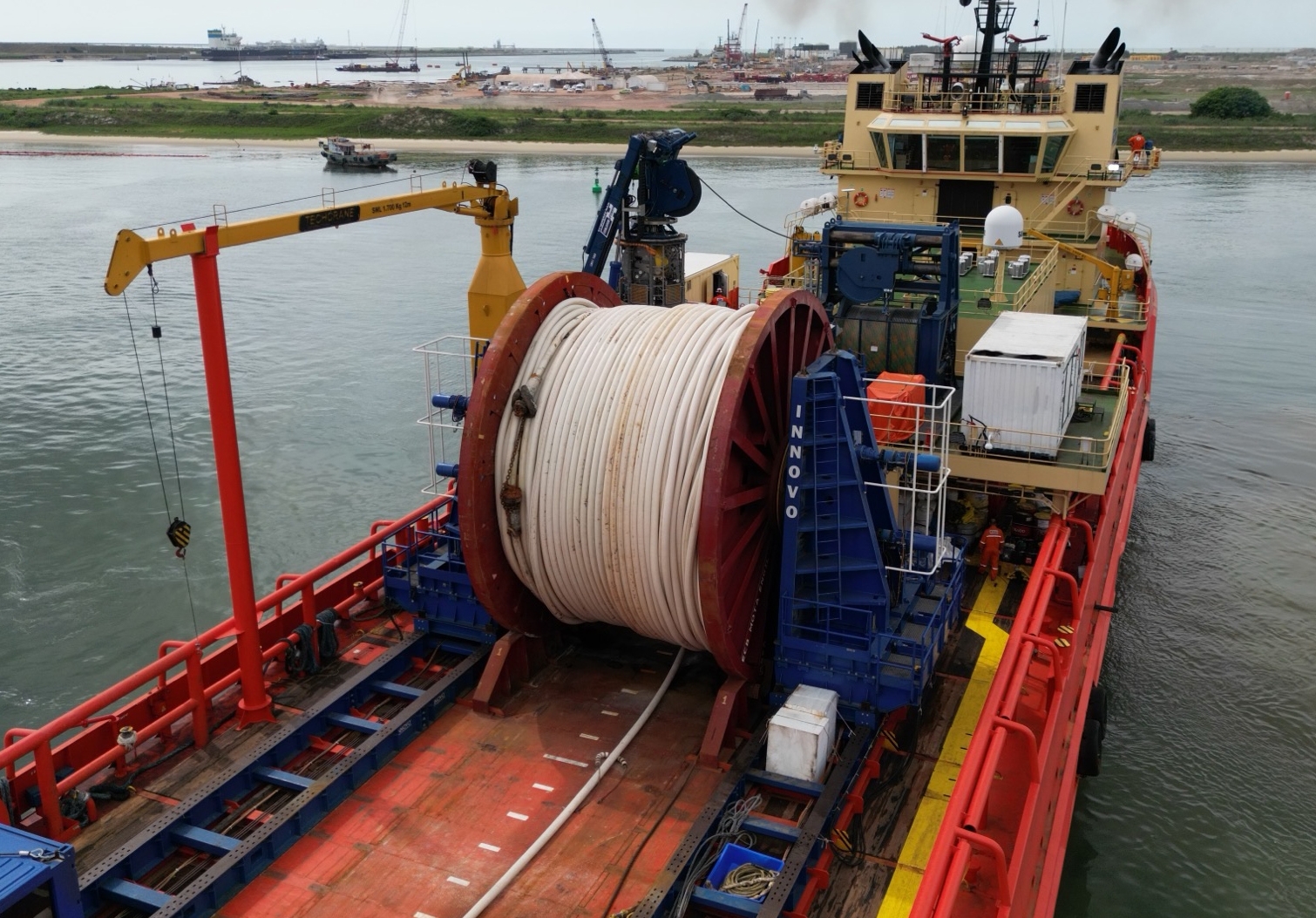Client: Consorcio Ecb-Sea_Alsub
Project: Decommissioning of subsea flexibles, umbilicals and cables
Location: Bacia de Campos, Rio de Janeiro, Brazil
The challenge
Petrobras was required to remove oil extraction pipes that were deposited over a distance of 1,400 kilometres, along with six anchoring and exploration structures, on the seabed off the Brazilian coast. This material was located across six coastal areas which collectively spanned 460 square kilometres – comparable to the size of a city like Florianópolis (SC) or Porto Alegre (RS).
The solution
Innovo worked on the last phase of the decommissioning project of the Corvina, Pargo A, and B and Garoupinha fields.
Our scope of work involved providing specialist equipment and personnel for the removal of flexibles, umbilicals and cables.
We deployed the Innodrive RDS 800 and Innodrive RDS 700; two of the most powerful reel drive systems (RDSs) available on the market. These RDSs were designed, developed and manufactured by Innovo to carry up 800 tons and 700 tons of product (product + reel) respectively. They are used for single or multiple installations of flexible flowlines, umbilicals, coiled pipe, mooring wires and power cables, ensuring safe, fast, and economical operations.
Innovo adapted the RDSs specifically for the client’s decommissioning activities, enabling the equipment to deliver a torque of over 325 ton-metre continuously.
Innovo also supplied experienced personnel to operate the equipment, as well as the project management skills that were essential to coordinate the different phases and schedules involved in this complex decommissioning project.
Innodrive RDS 800 and Innodrive RDS 700 recovered cable sections from the seabed by winding them onto large reels on two Platform Supply Vessels (PSV) with a Remotely Operated Vehicle (ROV) providing support.
The result
- Zero injuries occurred during the project. Innovo and Consorcio Ecb-Sea_Alsub prioritised the safety and security of personnel when coordinating tasks and activities
- Project completed six months ahead of schedule: the original project duration was two years; it was completed in one and a half
- 1,000 pieces (approx.) of umbilicals, hoses and cables were recovered over a total of almost 1,000 km
- No coral reefs were found on the removed pipelines, indicating minimal seabed disturbance.


